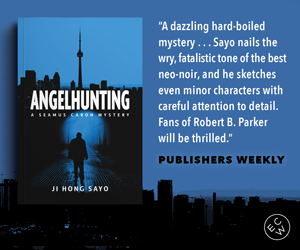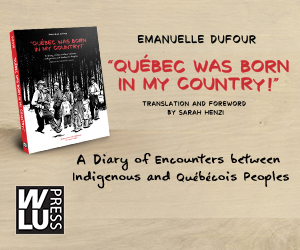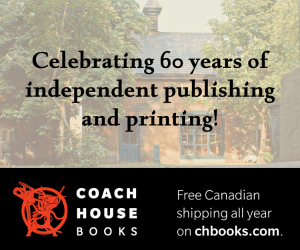On Making Connections
By Adebe DeRango-Adem
In my last post I talked a bit about the importance of connection to others, giving thanks towards and for others, and would like to continue with this theme by focusing on the "how" of connection. No writer is an island, and no book was ever written in total isolation. The writer is arguably the median of their medium--they arrive from having grown up reading a plethora of other writers and write largely for the purpose of reaching a plethora of other readers in time. The book is the conduit of making connections, and not just literary ones, but "human being" ones as well.
One of the first things I told myself when I started "taking writing seriously" was that I should make a pact to myself to never believe in barriers between me, as an amateur, and the writers who had impacted me greatly or embodied a part of what I wished to exude. A pact to say that I would make it a priority to meet/get to know/and if lucky befriend the very writers who I had previously followed from afar. Geographic distance would be my only challenge; otherwise, if I wanted to become a writer of their caliber, I would have to make a pact that, in some minuscule way, I would remain unafraid of putting myself in their spheres. I felt that this was the true way of feeling part of a real literary community, local and beyond. Of course reality kicked in when I realized that approximately three quarters of my greatest literary influences had passed, that I would only meet them in my dreams. But that nonetheless left me with a great deal of people to look up to, and I could always still give praise to the writers before me, even if meeting them in person would be a fantasy at best.
So it began with my enrollment at Naropa University's Jack Kerouac School of Disembodied Poetics, where I spent a glorious set of months doing meditations and writing exercises with Anne Waldman and the late Amiri Baraka, and meeting very interesting folks from around the world (whilst taking in the brilliance of the Colorado mountains, no less). It was that experience that really fueled a deep urge in me to write with conviction. Baraka, whom I had mentored with and counseled me on my work, told me that many of my lines were "tight" but that I should never give in to "spontaneous ignorance." Brilliant, thank you. I have kept his words in mind ever since, and to this day, every poem I write echoes his advice.
I would later take on an internship in NY where I'd meet Rita Dove, who, while signing her book for me (Sonata Mulattica), had told me that my work on interracial figures in literature was "such important work, and that [I] should keep doing it no matter what." Okay, Rita Dove. When it comes to my research interests, I tend to use her advice as wings.
Other important moments of connection were my attending a reading by Elizabeth Alexander, the official poet of President Obama's inauguration, and having her sign my book and, strangely, know how to spell my name without me saying anything. Then there was my encounter with then U.S. Poet Laureate Natasha Trethewey, who gave me permission a couple years before to feature her work in my anthology (Other Tongues: Mixed Race Women Speak Out, Inanna Publications, 2010). When I met her for the first time in person, I thanked her for letting me republish a piece of hers, and her response was that "the honour was all [hers]."
Your CanLit News
Subscribe to Open Book’s newsletter to get local book events, literary content, writing tips, and more in your inbox
Such encounters with powerful writers, and power black women writers at that, didn't end there. I was lucky to have been invited on scholarship to an annual retreat at Keystone College (Pennsylvania) called "The Gathering," where that year's keynote would be the prolific (and former Philadelphia Poet Laureate) Sonia Sanchez. At one point during the conference she asked all participants to gather into a circle and hold hands to engage in a kind of poetic communion, and for one reason or another, she signaled to me to her right hand side. It would most likely take another blog post to describe the kind of powerful energy she has, but I will say this: after holding her hand, I left blessed, and more than a little star struck.
This leads me to "the present," which I see as incredibly connected to the past. When current Parliamentary Poet Laureate George Elliott Clarke recommended my work on behalf of the CBC, it made things really feel like they were coming together. That my attempts to write and make connections, show praise, show up at readings around the continent over the years, etc., were paying off in deeply profound ways. Whether on my own accord or by divine intersection, I have stuck to my promise of always maintaining a sense of connectivity to my influences, and I think this is key for all writers, especially those who feel they have much to "live up to." The point is to live, and look up to people, and find your light in theirs (and vice-versa). To make connections, even if in a momentary handshake at a book signing where you introduce yourself and say more than hello, can be empowering enough to want to take responsibility for one's work and see that it, too, will one day influence another, and in fact may already be influencing others.
Going after literary greats isn't the real goal I’m discussing here, but rather the necessity that the writer, whatever stage of their craft they believe themselves to be, tear down all walls between what they "are" and what they "can be" and see that in connecting with others they are already in the mode of becoming the greatness they envision.
The views expressed in the Writer-in-Residence blogs are those held by the authors and do not necessarily reflect the views of Open Book: Toronto.
The views expressed in the Writer-in-Residence blogs are those held by the authors and do not necessarily reflect the views of Open Book.
Adebe DeRango-Adem is a writer and doctoral student at the University of Pennsylvania. Her work has been published in various North American sources, including Descant, CV2, Canadian Woman Studies and the Toronto Star. She won the Toronto Poetry Competition in 2005 to become Toronto’s first Junior Poet Laureate. Her debut poetry collection, Ex Nihilo, was one of ten manuscripts chosen in Frontenac House's Dektet 2010 competition and was longlisted for the Dylan Thomas Prize. She is also the co-editor, alongside Andrea Thompson, of Other Tongues: Mixed-Race Women Speak Out.


